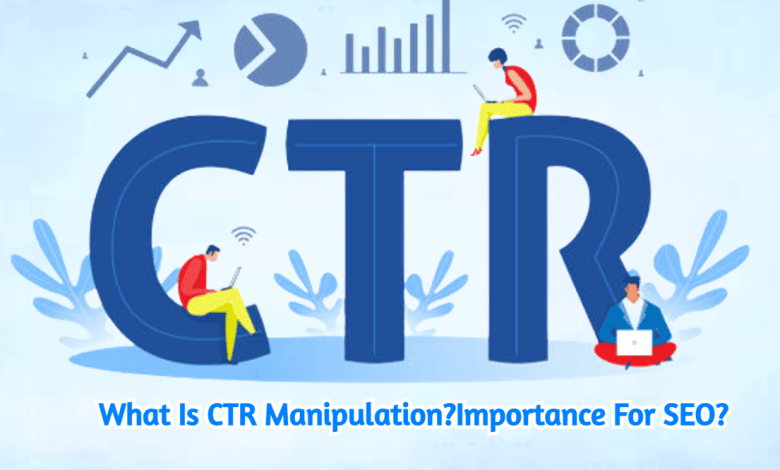Checking Out the Relationship In Between CTR Control Services and Individual Actions
In the realm of digital advertising and marketing, the impact of click-through price (CTR) control solutions on customer behavior stays a complex and intriguing topic. As online systems significantly depend on CTR metrics to gauge the success of content, items, and solutions, recognizing how these controlled prices influence user engagement and decision-making processes is extremely important. The interplay between CTR control and individual habits questions about authenticity, dependability, and the moral effects of such techniques. By studying the detailed relationship in between CTR manipulation solutions and user actions, interesting understandings arise that may improve our understanding of electronic marketing techniques and their impacts on consumers.
Effect of CTR Adjustment on Actions
Examining the influence of Click-Through Price (CTR) adjustment on individual behavior discloses important insights right into the characteristics of online engagement. CTR adjustment includes artificially blowing up the variety of clicks on a certain link or advertisement to trick customers and internet search engine. This method can result in an altered understanding of a page's appeal or significance, eventually affecting individual behavior.

Moreover, CTR manipulation can alter the data utilized by formulas to personalize user experiences. This can lead to individuals being offered web content that does not straighten with their choices or rate of interests, inevitably bring about a decline in individual complete satisfaction and involvement. Understanding the impact of CTR adjustment on user behavior is vital for keeping openness and count on on-line interactions.
User Interaction With Controlled CTR
Customer involvement with adjusted CTR data commonly brings about manipulated perceptions of online content popularity and significance. When individuals connect with web content based upon unnaturally filled with air Click-Through Fees (CTR), they may believe that specific details, items, or solutions are a lot more prominent or trustworthy than they actually are. This can result in users making decisions based on deceptive information, resulting in possibly unfavorable results.
Interaction metrics like likes, shares, comments, and time spent on a webpage are frequently influenced by CTR adjustment. Customers might be a lot more likely to engage with web content that shows up to have higher engagement prices, additionally bolstering the cycle of manipulated understandings. Consequently, content makers and marketers may focus on generating material that generates high CTR instead than concentrating on producing genuinely beneficial and pertinent material.

Mental Effects of CTR Adjustment

In addition, the mental effects of CTR adjustment can additionally materialize in altered decision-making procedures. Users may be more likely to click on content only based on its perceived appeal, instead of its real value or relevance to their demands. This behavioral change can result in a surface interaction with online web content, where individuals might ignore premium however much less prominent offerings in favor of those with unnaturally increased CTRs.
Essentially, the mental implications of CTR control highlight the importance of maintaining transparency and authenticity in on-line interactions to foster real user interaction and trust.
Honest Considerations in CTR Manipulation
Thinking about the moral ramifications of adjusting click-through rates (CTR) in on the internet systems is critical for preserving honesty and count on within the electronic ecosystem. CTR control elevates problems regarding tricking customers, distorting data analytics, and endangering the trustworthiness of on-line web content. One major ethical factor to consider is the possible influence on user autonomy and decision-making. By artificially blowing up CTR, customers may be misguided right into clicking web links or advertisements they would not have selected or else, leading to a disingenuous online experience. Furthermore, CTR control can alter the efficiency metrics that businesses depend on to make calculated choices, eventually impacting market competitors and customer trust.
Another moral facet to consider is the fairness of manipulating CTR to gain an unreasonable benefit over competitors. Involving in such techniques not only goes against concepts of justice but likewise undermines the trust that users place in on-line platforms. It is important for businesses and electronic marketing experts to promote ethical criteria in their methods to guarantee openness, integrity, and long-term sustainability in the on-line atmosphere.
Effects for Digital Advertising
CTR adjustment can lead to skewed information analytics, misdirecting online marketers into believing that their campaigns are carrying out better than they really are. When individuals recognize that CTRs have been controlled, it can wear down trust in the brand, leading to long-lasting negative consequences for customer loyalty and brand Extra resources reputation.
Additionally, making use of CTR control services can create an unfair competitive landscape, where firms that participate in such practices gain a synthetic straight from the source advantage over those that stick to moral advertising and marketing requirements. This can stifle advancement and imagination in electronic advertising, as success becomes more about manipulation strategies than providing authentic value to customers. Eventually, the ramifications of CTR manipulation for electronic advertising and marketing prolong beyond temporary gains, affecting the overall sustainability and trustworthiness of advertising efforts in the electronic world.
Conclusion
In verdict, the connection between CTR adjustment services and user actions is complicated and multifaceted. The influence of CTR control on actions, individual engagement with adjusted CTR, mental effects, honest considerations, and ramifications for digital marketing all contribute in shaping this partnership. Comprehending these characteristics is vital for marketing professionals and researchers alike in order to browse the moral implications and make the most of the performance of their digital advertising strategies.